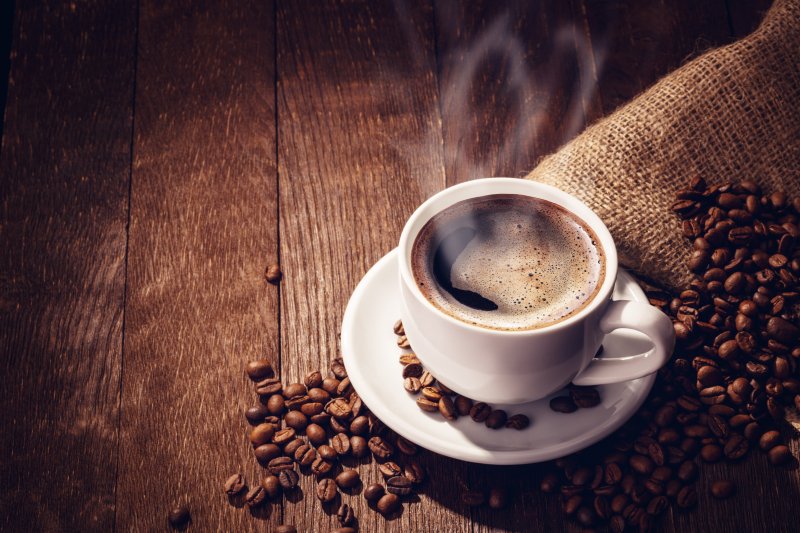
Coffee is one of the most popular beverages on the planet, and many people enjoy drinking it in the morning to help them perk up for the day ahead. While you may be eager to get back to your normal habits after having a tooth extracted, it’s best to wait a few days before enjoying a cup of coffee. Here’s a brief guide to how coffee can complicate the healing process and when you can safely indulge in your favorite brew again.
Why Is Coffee Risky After a Tooth Extraction?
Coffee is often served hot or iced, and drinking hot or icy beverages can burn or irritate the vulnerable tissues in and around the site of a recent tooth extraction. This can cause pain while also making it easier for the blood clot protecting the wound to be broken or dislodged. Compromising the blood clot after a tooth extraction in this way will lead to a severely painful condition called dry socket that can increase the patient’s risk of infection.
Caffeine, the mild stimulant in coffee, also has a dehydrating effect, which can reduce your saliva production and hinder your mouth’s natural healing process. This can increase the risk of injuries to and infections of the extraction site.
What Should I Drink After a Tooth Extraction?
The best beverage after tooth extraction will always be water. This essential liquid will keep you hydrated enough for sufficient saliva production and a thorough healing process, and it will also help wash food debris and sugary residues from your mouth. Water is also neither acidic nor basic, which means it won’t irritate your soft tissues or harm your enamel.
When Can I Drink Coffee After a Tooth Extraction?
Luckily, you won’t have to wait too long after your tooth extraction before enjoying your next cup of coffee. It’s best to wait at least five days before drinking coffee, as this will give your mouth enough time to heal sufficiently for heat, iciness, and caffeine to be reasonably harmless to the extraction site.
Adhering to your dentist’s aftercare instructions is the best way to ensure your comfort and a complication-free healing process after tooth extraction. This way, you can resume your normal habits of daily living and continue enjoying coffee as soon as possible.
About the Author
Dr. Henry Diep earned his dental degree at Midwestern University in Glendale and stays abreast of the latest developments in oral healthcare through continuing education coursework. He is proud to be a member of the California Dental Association and to protect the smiles of Hayward from injury and infection. His office offers general, restorative, cosmetic, and emergency dentistry as well as tooth extractions. To learn more about extraction aftercare, contact his office online or dial (510) 314-8426.
